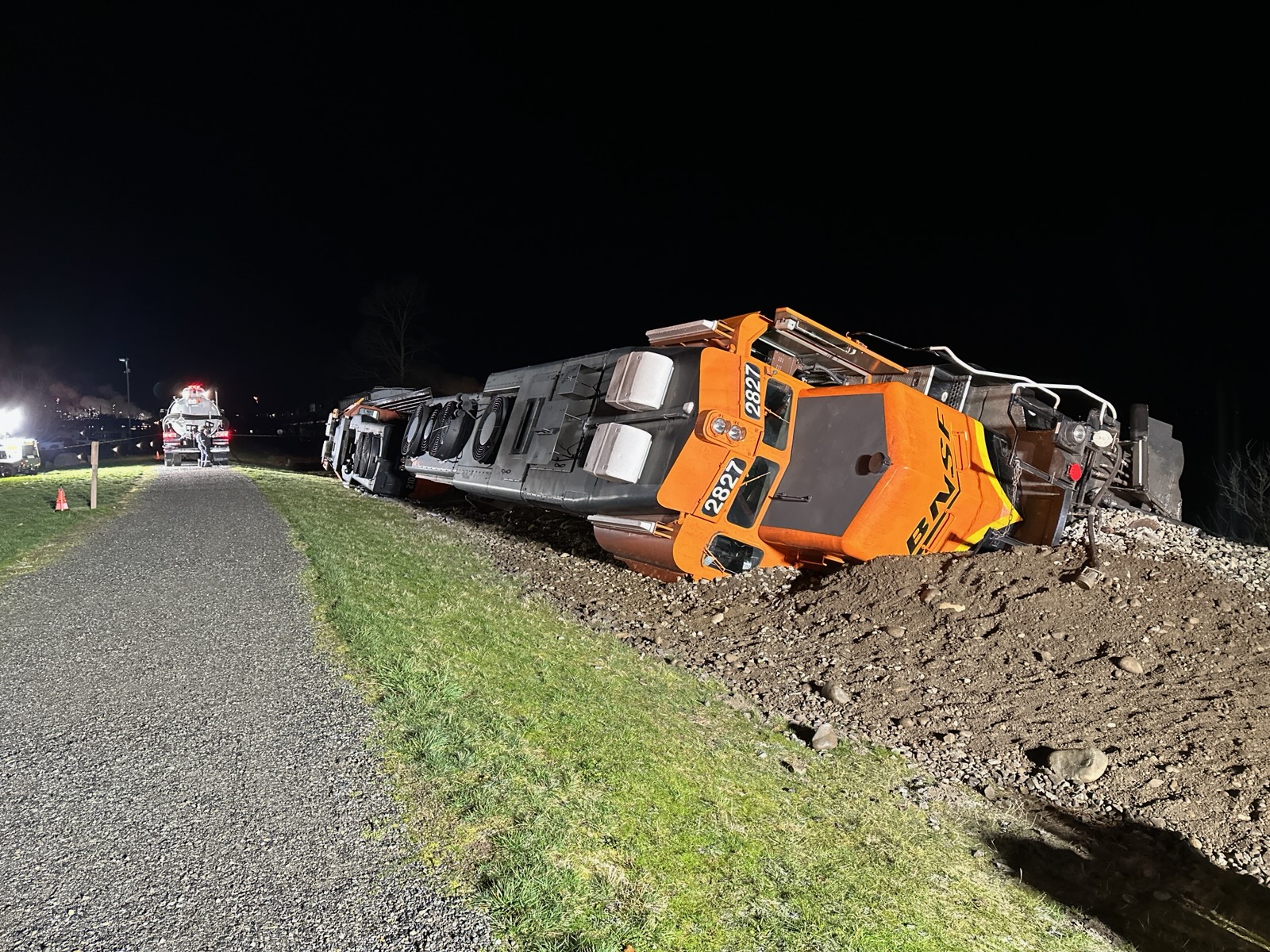
- Details
- By Native News Online Staff
Yesterday, a federal judge in Seattle ruled that BNSF Railway must pay the Swinomish Indian Tribal Community nearly $400 million for trespassing on the tribe’s reservation for nearly a decade.
In April 2015, the tribe filed suit against BNSF, the largest freight railroad in the United States, for violating the terms of an easement agreement it signed in 1991 that set a limit of no more than 25 cars passing its reservation per day.
But beginning in 2012, BNSF began exceeding that allowance without notifying the tribe, running at least six 100-car trains traveling in each direction across the tribe’s reservation per week, according to the lawsuit.
In an eighteen-page ruling issued on June 17, District Court Judge Robert Lasnik ordered that BNSF Railway pay total trespass profits of $394 million to the Swinomish Indian Tribal Community for trespassing between 2012 and 2021.
“We know that this is a large amount of money,” Steve Edwards, Chairman of the Swinomish Indian Tribal Community, said in a statement. “But that just reflects the enormous wrongful profits that BNSF gained by using the tribe’s land day after day, week after week, year after year over our objections. When there are these kinds of profits to be gained, the only way to deter future wrongdoing is to do exactly what the Court did today – make the trespasser give up the money it gained by trespassing.”
Chairman Edwards added that the tribe first tried to resolve its conflict with BNSF out of court through formal letters to the company, as well as tribal staff and tribal lawyers personally meeting with BNSF representatives “multiple times from 2012 to 2015.”
“But in the end none of that mattered,” Chairman Edwards said. “BNSF kept running its oil trains and despite the letters and despite the meetings, BNSF told the tribe in early 2015 that it was just going to keep running those 100-car trains across the reservation. That’s when we knew we had to ask the Federal Court to protect our Tribal rights in our reservation lands.”
The United States District Court in Seattle ruled early in the Tribe’s 2015 lawsuit that “BNSF neither apprised the tribe of its cargo nor obtained the tribe’s written agreement to an increase in the number of trains and the number of cars in those trains.”
But BNSF argued that its obligations to its shippers superseded its obligation to the tribe under the easement agreement. The District Court issued an order upholding the tribe’s rights in 2017, and BNSF filed an appeal to the United States Court of Appeals for the Ninth Circuit. In 2020, the Court of Appeals rejected BNSF’s argument.
Chairman Edwards said that he expects BNSF to appeal this week’s decision, as they have before in this case, “But we have faith and we look forward to defending Judge Lasnik’s decision to protect our homeland.”
More Stories Like This
Native News Weekly (August 25, 2024): D.C. BriefsUS Presidents in Their Own Words Concerning American Indians
Indigenous Actor Elaine Miles Reports Detention by Alleged ICE Agents
Happy Thanksgiving from Native News Online
Coming Up on Native Bidaské: Behind the Animation: Joey Clift Talks “Pow” and Native Storytelling
Help us tell the stories that could save Native languages and food traditions
At a critical moment for Indian Country, Native News Online is embarking on our most ambitious reporting project yet: "Cultivating Culture," a three-year investigation into two forces shaping Native community survival—food sovereignty and language revitalization.
The devastating impact of COVID-19 accelerated the loss of Native elders and with them, irreplaceable cultural knowledge. Yet across tribal communities, innovative leaders are fighting back, reclaiming traditional food systems and breathing new life into Native languages. These aren't just cultural preservation efforts—they're powerful pathways to community health, healing, and resilience.
Our dedicated reporting team will spend three years documenting these stories through on-the-ground reporting in 18 tribal communities, producing over 200 in-depth stories, 18 podcast episodes, and multimedia content that amplifies Indigenous voices. We'll show policymakers, funders, and allies how cultural restoration directly impacts physical and mental wellness while celebrating successful models of sovereignty and self-determination.
This isn't corporate media parachuting into Indian Country for a quick story. This is sustained, relationship-based journalism by Native reporters who understand these communities. It's "Warrior Journalism"—fearless reporting that serves the 5.5 million readers who depend on us for news that mainstream media often ignores.
We need your help right now. While we've secured partial funding, we're still $450,000 short of our three-year budget. Our immediate goal is $25,000 this month to keep this critical work moving forward—funding reporter salaries, travel to remote communities, photography, and the deep reporting these stories deserve.
Every dollar directly supports Indigenous journalists telling Indigenous stories. Whether it's $5 or $50, your contribution ensures these vital narratives of resilience, innovation, and hope don't disappear into silence.
 The stakes couldn't be higher. Native languages are being lost at an alarming rate. Food insecurity plagues many tribal communities. But solutions are emerging, and these stories need to be told.
The stakes couldn't be higher. Native languages are being lost at an alarming rate. Food insecurity plagues many tribal communities. But solutions are emerging, and these stories need to be told.
Support independent Native journalism. Fund the stories that matter.
Levi Rickert (Potawatomi), Editor & Publisher

